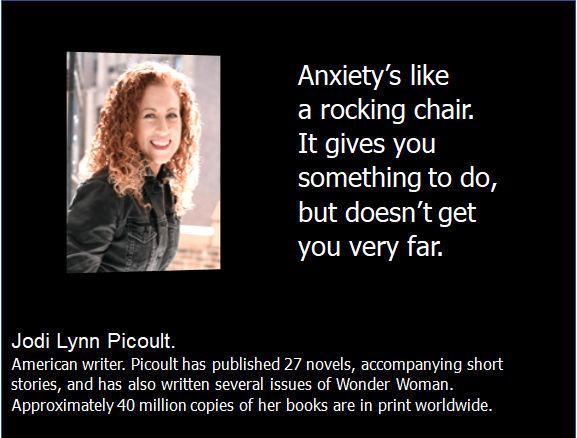
4 minute read
KNOWING YOURSELF Are you a spoiled child? Are you self-centered? Are you logical? Do you take everything for granted?
KNOWING YOURSELF
To progress and be happy, it is fundamental to know oneself. Here are some questions to ask yourself. There are many others and during your introspection you will surely add more.
Advertisement
• Are you a spoiled child? • Are you self-centered? • Do you know right from wrong? • Are you logical? • Do you have a critical mind? • Are you resourceful? • Do you take everything for granted? • Are you ready to make the first effort? • Do you have a sense of organization? • Do you know how to manage priorities? • Are you comfortable in teamwork?
You have to take a critical look at yourself and recognize that sometimes you can be wrong. This skill is the very basis of career development potential, because by knowing our weak points, we are able to find ways to improve.
In this quest for ourselves, others can be useful to us. The perspective and opinion of colleagues and clients help to get the facts straight about our work. Annual reviews as well.
Do the same comments come up every time? What links can we make between them and what can we deduce?
We must be attentive to what the environment tells us. Personal strengths are very important in the intellectual growth of a person.
These are the attributes that define us as individuals.
Positive attributes can include being honest, kind, patient, respectful, motivated, confident, and self-disciplined. While negative attributes can include being dishonest, impulsive, cruel, selfish, and obnoxious.
Overall, personal strengths are the personal skills we use to achieve goals. These are also the skills that help us survive.
With that in mind, it's easy to see why some people see negative attributes as strengths. However, these « strengths » rarely lead to positive relationships and high levels of satisfying and lasting success.
If we really want to change our lives and take more control over our future, personal strengths are the starting point to start developing basic skills.
Generally speaking, positive attracts positive and produces better results. Thus, our main goal should be to acquire and develop positive attributes. However, since no one is perfect, allowing time to minimize weaknesses is also a good idea.
A personal inventory is a good starting point. Before acquiring and developing the skills that will allow us to succeed, we must first identify these specific skills.
A good way to do this is to create a personal inventory that outlines current strengths and weaknesses. This personal assessment will help develop an overall plan for developing the skills needed.
1. Honesty and trust are the most important: honesty is probably the greatest personal strength. It is also a crucial element of good character.
• If we are not honest with ourselves, reality can become a fantasy. • If we are not honest with others, we cannot expect them to be honest with us.
As mentioned before, the positive tends to attract the positive. Honest people tend to attract honest people and dishonest people tend to attract dishonest people.
Who do you think will have the easiest path to success?
2. Self-confidence makes us progress: the fear of failure often holds people back. If we don't believe we can accomplish something, we may not even try.
Nothing will change if we don't find the courage and self-confidence to overcome our fear. Keeping a positive attitude is an essential part of selfconfidence and very important for finding true happiness and success.
By focusing on what we can do rather than what we can't, it will be easier to answer the question: what is success as it relates to our personal life?
Start small. Slowly gain confidence by completing a series of small tasks, remembering to acknowledge those accomplishments as successes and move on.
3. Self-control empowers us: self-discipline is empowering. By recognizing and using our « zone » of control, we learn to take charge of our actions, reactions, emotions, and attitudes to the best of our ability.
This allows us to gain a stronger position in almost any situation. If others dictate our actions, reactions, emotions, and attitudes, we give up that power.
4. Stress control keeps us focused on the important things: stress management skills can help us take at least some control over every situation.
The decrease in stress in a given situation allows us to think more clearly.
5. Setting goals keeps us moving in the right direction: setting personal goals not only gives us a roadmap for success, but also increases our determination and self-confidence.
If the goal is realistic and well defined, we will be more determined to achieve it. And every step taken along the way will build the confidence to keep going.
6. Limits keep us safe: we have the right to set limits on our time, our energy, our money, and our emotions. Boundaries protect individuality and are a very important part of successful relationships.
7. Personal strengths form a basis for other skills: the strength of our people skills and our project skills are highly dependent on the strength of our personal attributes.
• If we have self-confidence, then assertiveness and project management will become easier. • If we have self-control, then conflict resolution and quality work will be easier to achieve.
On the other hand, if we are obnoxious or intimidating, cooperation with others will be more difficult. Always keep in mind that dishonesty can easily destroy relationships and lead to dismissal.
Organization can also be difficult if we tend to be impulsive.
Undoubtedly, personal strengths provide a solid foundation for developing both relationship skills and project skills.









